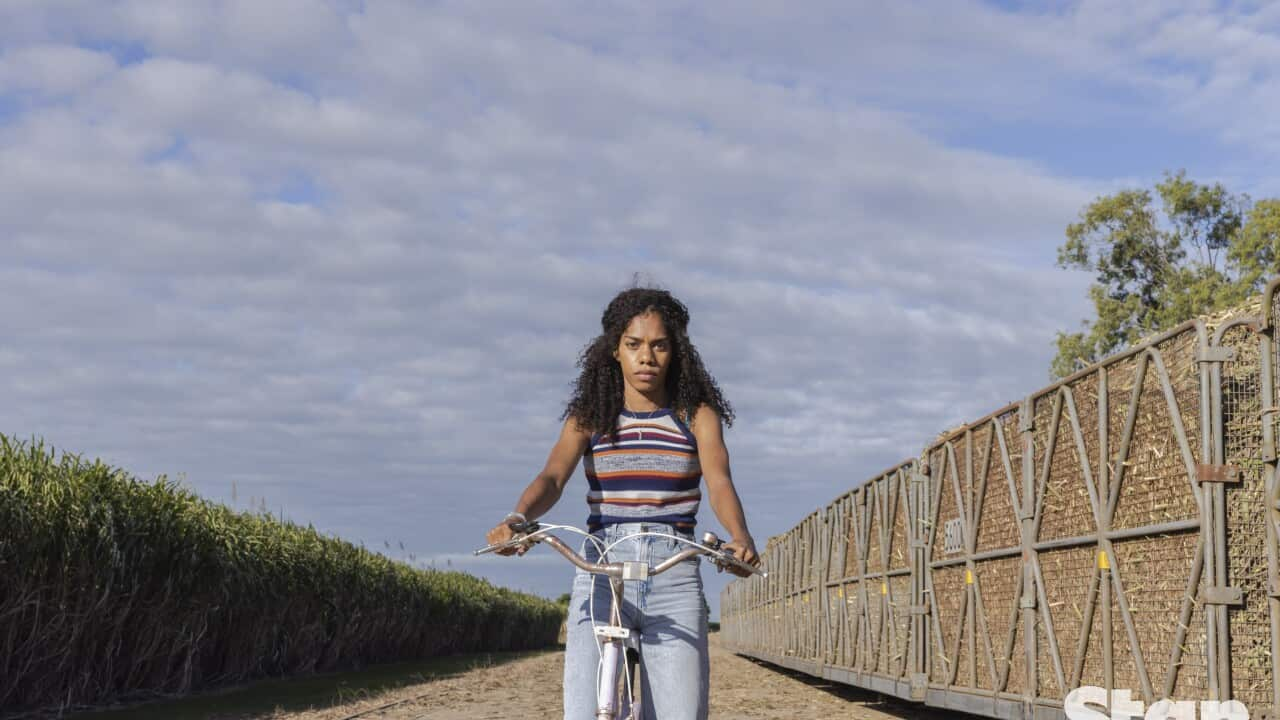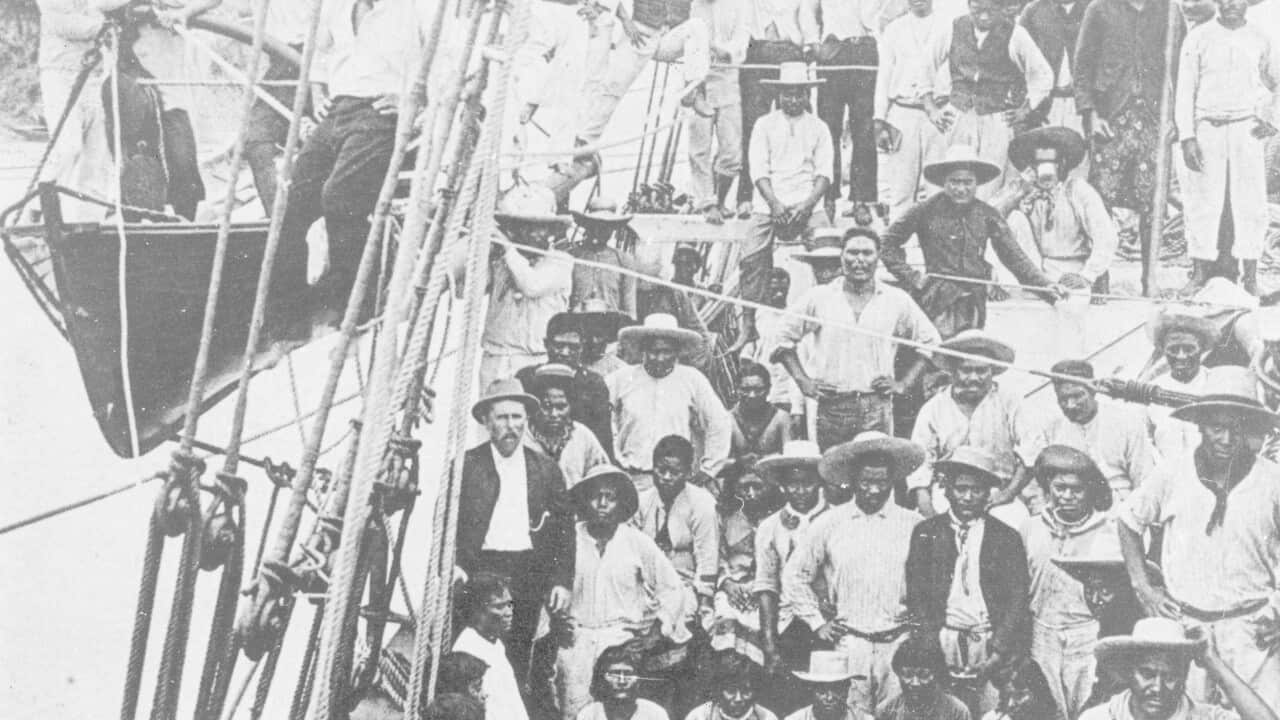Mackay, in Far North Queensland, is home to the Yuwibara people, who make up 6.2 per cent of the population.
Alongside a significant number of South Sea Islanders, many are descendants of the Kanakas, or Blackbirds, a label derived from the form of slavery that bears its name.
Blackbirding was the coercive or misleading recruitment of Pacific Islanders for indentured labour in Queensland's sugar and cotton industries by white farm and plantation owners.
During the 19th and early 20th centuries, thousands of people were deceived, enticed, or forcibly taken from more than 80 islands, including Vanuatu, the Solomon Islands and Papua New Guinea, to endure gruelling working conditions with minimal or no compensation.
For the descendants who honour their cultural heritage, achieving constitutional recognition is a critical objective, along with bringing attention to the brutal practice that still remains largely ignored in the public consciousness and overlooked in the mainstream educational system.
“Like we always say: Always was always will be,” said Yuwi and South Sea Elder Veronica Tonga.
"We're not trying to shove it down people's throats. Remember that there is a history.
“In Mackay, the blood sweat and tears of all our South Sea Islanders, and they were getting this town together.”
'The forgotten people'
Aunty Seini Willitt, local South Sea Islander community member and actor, describes it as another stolen generation of people.
“That Stolen Generation is something mainstream Australia talk about, but it doesn't include the South Sea Islanders - that's why we were known as the forgotten people,” she said.
Many of the 5000 plus strong South Sea Islander community in Mackay also have Aboriginal heritage, a result of generations of families embracing each other’s culture and traditions.
“We are one mob, you can't detach, saying that you're just one culture when you're the two,” Aunty Veronica said.
“Because to me, that's denying my great grandmother that came in on the boat ... we've got to acknowledge both.
“And every time I do a Welcome, I will acknowledge Aboriginal, Torres Strait and Australian South Sea Elders in my Welcomes - it's just the way it is.”
READ MORE

Blackbird
Identity, for many, can be difficult to articulate, however with constitutional recognition, along with a truth telling process, the community believe they would have a greater chance to feel accepted, and for future generations of South Sea Islanders to have their own connection to country.
“It's hard to explain Australian South Sea Islander identity, because we don't belong back home on the islands because we were taken from there, and it's been so long since a lot of the community has been back as well,” local South Sea Islander artist Dylan Mooney said.
“We've kind of lost that culture as well, of being back in the Pacific, but at the same time, we don't belong.
“We feel like aliens in Australia as well. I think, through the years, community has created their own culture and kept those stories alive as well, but never forgetting where we come from.”
In the wake of the Voice referendum, and with a Federal Election this Saturday, many in the community feel the time is right for the push for constitutional recognition.
Aunty Seini says that the wheels are already in motion and she can feel the shift.
“There are some people who are taking it to the government to have Australian South Sea Islanders be recognised, to be able to claim health,” she said.
"We don't have housing, we don't have any of those types of things that are there for our Aboriginal and Torres Strait Islanders.
“But we are moving forward. We have people who have taken it to the government to that next level to be able to be recognised and counted.
“To recognise us, to know that we are here, to put us in the Constitution ... so that we can have our young ones, our next generations know who they are, where they come from, and that we are part of Australia because we built Australia alongside our Aboriginal and Torres Strait Islanders.
“Be proud and to look at the stories, because that's our history.
I think about my ancestors, who were the ones that were brought over with that indentured labour and it's our responsibility, it's up to us now.
Dylan feels the timing is right for the push to gain momentum.
“People are now looking into Australia's history and wanting to know more about Australian South Islanders and who we are and our journey here and where we come from,” he said.
“Using art as a tool to help create that story and get that message across to the wider community, it gets people thinking differently, and it challenges their knowledge of what is Australia and our history.”
For too long, the South Sea Islander community says, the ugly truth of historical injustices has been white-washed, with an unwillingness to accept that their forebears participated in such barbaric practices.
“It is ignorance,” Aunty Veronica said.
“The blood, sweat and tears of our Elders, they put this on the ground, they started a lot of things here.”
As we edge closer to the weekend, and the federal election the focus, Aunty Veronica has message to politicians.
“Come and see what the grass roots are - don't sit up there in your chair, thinking that you know what's good and what's not, come and see what we do,” she said.
“Because it's hard to try and educate - that's why we're trying to get into the schools now, trying to educate our young ones so that as they grow up they don't have that racism, they don't have that segregation.
“We're trying to pull everybody together.”







